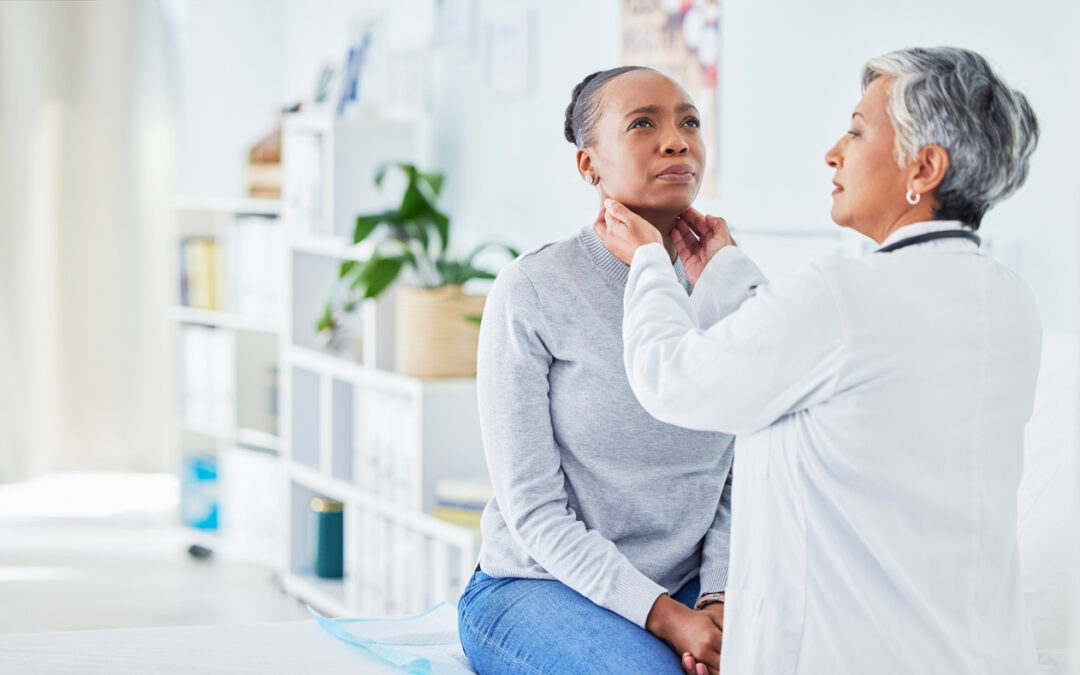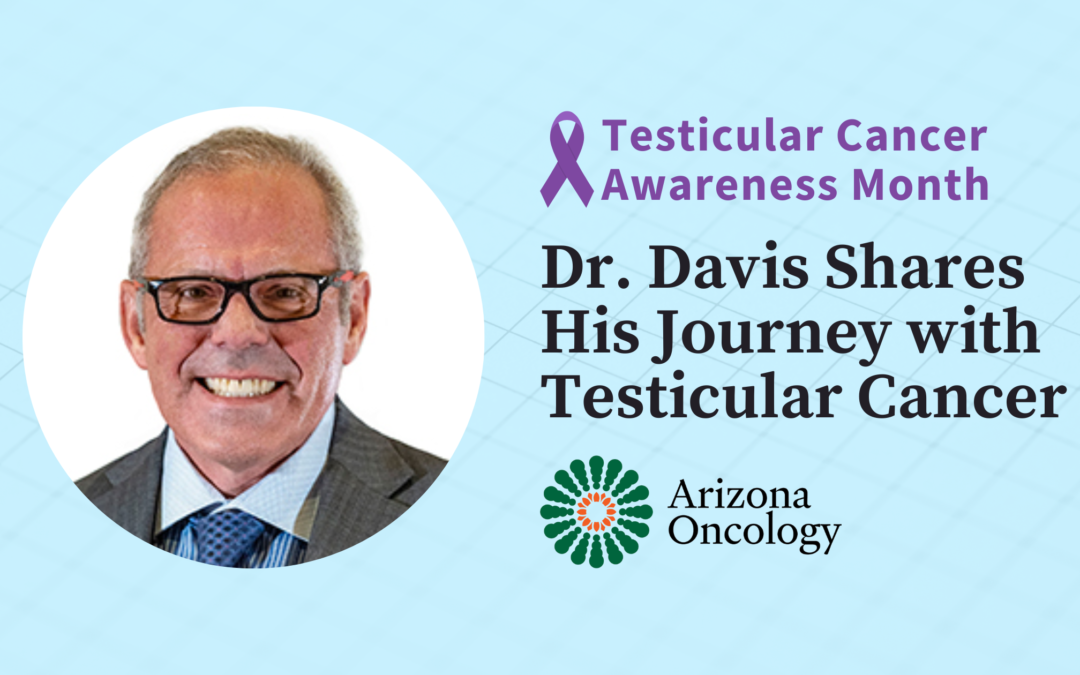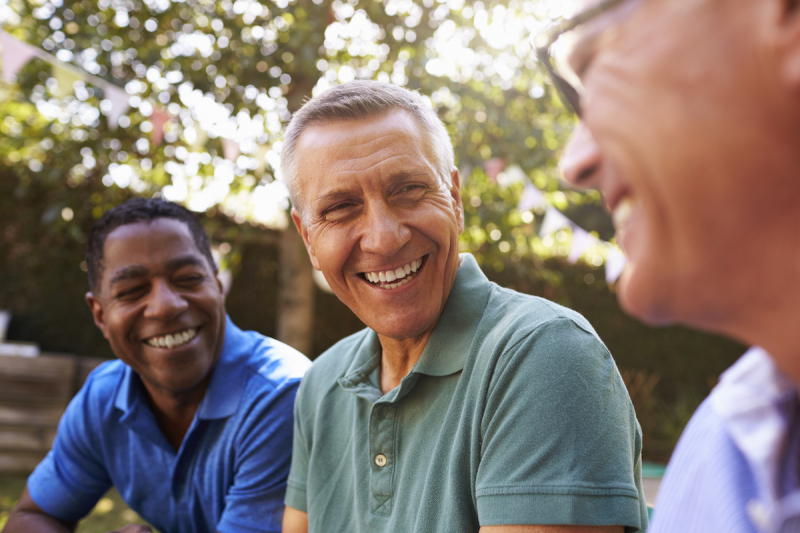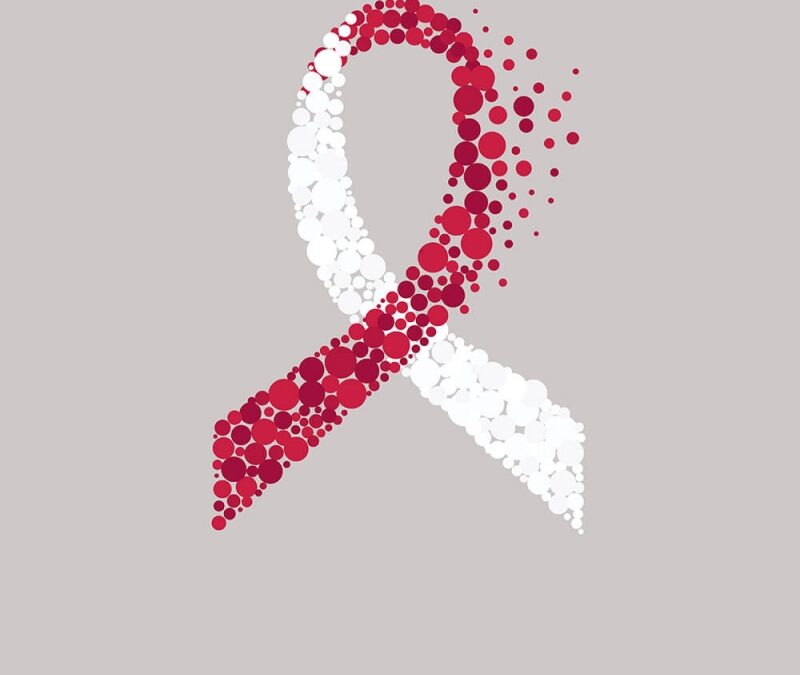
Apr 20, 2023 | Southern Arizona
April is Oral, Head & Neck Cancer Awareness Month and Arizona Oncology, a practice in The US Oncology Network, would like to remind both men and women to speak with their healthcare providers about getting screened for the disease.
Oral cavity and oropharyngeal cancers are more than twice as common in men as in women and occur most often in the tongue, tonsils and oropharynx, gums, floor of the mouth, and other parts of the mouth. It is estimated that approximately 39,500 people will get oral cavity or oropharyngeal cancer in the United States this year, and an estimated 7,500 will lose their lives to the disease (American Cancer Society Cancer Facts & Figures, 2015).
Many pre-cancers and cancers of the oral cavity and oropharynx can be found early during routine screening exams by a dentist, doctor, dental hygienist or by self-exam. However, many of these cancers are found because of signs or symptoms. Even small signs should be examined. Any bumps inside the mouth, on the tongue, or lips that do not go away should be seen by a physician. Also, difficulty swallowing is a sign that should be checked out.
Possible signs and symptoms of oral cavity and oropharyngeal cancer can include:
- A sore in the mouth that does not heal (most common symptom)
- Pain in the mouth that does not go away (also very common)
- A lump or thickening in the cheek
- A white or red patch on the gums, tongue, tonsil or lining of the mouth
- A sore throat or a feeling that something is caught in the throat that does not go away
- Trouble chewing or swallowing
- Trouble moving the jaw or tongue
- Numbness of the tongue or other area of the mouth
- Swelling of the jaw that causes dentures to fit poorly or become uncomfortable
- Loosening of the teeth or pain around the teeth or jaw
- Voice changes
- A lump or mass in the neck
- Weight loss
- Constant bad breath
Some people who have oral cavity or oropharyngeal cancer have few or no known risk factors, and others who have several risk factors never develop the disease. Factors increasing risk of the disease include:
- Tobacco use – Most people with oral cavity and oropharyngeal cancers use tobacco, and the risk of developing these cancers is related to how much and how long they smoked or chewed.
- Alcohol use – About 7 out of 10 patients with oral cancer are heavy drinkers.
- Betel quid and gutka – In Southeast Asia, South Asia, and certain other areas of the world, many people chew betel quid, which is made up of areca nut and lime wrapped in a betel leaf. Many people in these areas also chew gutka, a mixture of betel quid and tobacco. People who chew betel quid or gutka have an increased risk of cancer of the mouth.
- Human papilloma virus (HPV) infection – People with oral and oropharyngeal cancer linked to HPV infection tend to be younger and are less likely to be smokers and drinkers.
- Gender – About twice as common in men as in women.
- Age – Most patients with these cancers are older than 55 when the cancers are first found.
- Ultraviolet (UV) light – Cancers of the lip are more common in people who have outdoor jobs where they are exposed to sunlight for long periods of time.
- Poor nutrition – Several studies have found that a diet low in fruits and vegetables is linked with an increased risk of cancers of the oral cavity or oropharynx.
- Weakened immune system – Oral cavity and oropharyngeal cancers are more common in people who have a weak immune system.
- Graft-versus-host disease – Graft-versus-host disease (GVHD) is a condition that sometimes occurs after a stem cell transplant. During this medical procedure, blood stem cells from a donor are used to replace bone marrow that has been destroyed by disease, chemotherapy or radiation. GVHD occurs when the donor stem cells recognize the patient’s cells as foreign and launch an attack against them. GVHD can affect many tissues of the body, including those in the mouth. This increases the risk of oral cancer, which can occur as early as 2 years after GVHD.
- Genetic syndromes – People with certain syndromes caused by inherited defects (mutations) in certain genes have a very high risk of mouth and throat cancer. (Fanconi anemia, Dyskeratosis congenital)
- Lichen planus – This disease occurs mainly in middle-aged people. Most often it affects the skin (usually as an itchy rash), but it sometimes affects the lining of the mouth and throat, appearing as small white lines or spots. A severe case may slightly increase the risk of oral cancer.
Arizona Oncology plays a major role in helping people throughout the state and their families win their battle against oral cavity and oropharyngeal cancer by providing easy access to a full range of advanced cancer care services in a setting that allows patients to remain close to their homes and their support network of family and friends. (Originally posted 2015, updated 2024)

Apr 16, 2023 | Southern Arizona
April is Testicular Cancer Awareness Month. Approximately 1 in 250 men will develop testicular cancer at some point during their lifetime, and Caucasian men are four to five times more likely to develop testicular cancer than African-American and Asian-American men. The average age of a man diagnosed with testicular cancer is 33. Approximately 6% of cases occur in children and teens, and about 8% occur in men over 55.
If detected early, testicular cancer is one of the most curable forms of cancer. With today’s treatments, testicular cancer survival rates are high, with 95% of men surviving five years after diagnosis. That number jumps to 99% if the cancer was localized in the testicle.
In this blog post, Arizona Oncology’s Dr. Marshall Davis shares a personal account of his experience with testicular cancer and how it has helped him be the doctor he is today.
Dr. Marshall Davis’ story
Dr. Davis is not only a radiation oncologist at Arizona Oncology, but also a 12-year cancer survivor. He was in practice for almost 25 years when he did a self-exam and discovered that he had a tumor on his testicle. Knowing that any changes in size or lumps could be a sign of cancer, he immediately approached a urology colleague who performed an ultrasound.
The next day, Dr. Davis had surgery to remove the testicle that had cancer in it, followed by a series of scans and chemotherapy. A year later, one of his scans showed that his cancer had recurred. As an oncologist who treats many testicular cancer patients, he knew that recurrence was a very real possibility. “It was disappointing, but it didn’t surprise me,” he said.
Radiation therapy is typically used to treat testicular cancer that has spread to lymph nodes or to distant organs. Dr. Davis’ scans showed that there was cancer in his lymph nodes, and he underwent further surgery followed by radiation treatment. After radiation treatment, a follow up scan showed that the lymph node recurrences had disappeared.
But eight months later, right before Christmas, Dr. Davis felt a lump in his neck and realized that his cancer had returned. He said, “When I felt that lymph node, I almost cried because I knew what was next in line for me… really hard chemotherapy.” Despite the difficulties he knew he’d face, Dr. Davis was determined to undergo the chemotherapy, because he knew that if he did nothing the cancer was going to kill him.
Dr. Davis has now been cancer-free for 12 years
It is with great enthusiasm that we can say that 12 years ago, Dr. Davis fought for his life and is now cancer-free! It wasn’t easy, and he is quoted as saying, “There’s no free lunch in treating cancer. You never get something for nothing.” Since the chemotherapy, he has been living with many side effects. But he feels happy to be alive and to be able to continue to treat his patients. He firmly believes that “you can live with the side effects. What you can’t live with is the cancer.”
Dr. Davis’ personal experience has given him a better understanding of how to help cancer patients through their treatment
After having been through a difficult cancer journey himself, Dr. Davis understands on a personal level what patients go through when they are being treated for cancer. “You worry about life, death, and everything in between,” he recalled. He believes in helping patients through honesty and integrity. “You have to be honest with people about where they stand, and I’ve always felt like I’ve been able to do that effectively and with compassion. You can’t shy away from giving patients bad news just because it’s going to be hard. In my opinion, it’s better to face up to bad news as soon as possible, so you can get on with your life and try to make sense of it.”
You can learn more about Dr. Davis here.
Originally posted April 19, 2022. Updated 2024.

Apr 9, 2023 | Southern Arizona
Prostate cancer and testicular cancer are two different diseases affecting the male reproductive system. These cancers occur in two different locations and commonly affect men at different stages of their life. Because of these differences, it’s important for ALL men to learn as much as they can so they can take the appropriate steps toward early detection.
What is Prostate Cancer?
Prostate cancer is cancer that occurs in the prostate, the small walnut-shaped gland in men that produces the seminal fluid that nourishes and transports sperm. It is the most common cancer with about 1 in 9 men being diagnosed with prostate cancer during his lifetime.
Prostate cancer affects mostly older men, with an average diagnosis age of 65. Other risk factors include poor lifestyle habits, family history of prostate cancer, and race. African-American men are more at risk than men of other races. As with many other cancers, prostate cancer may cause no signs or symptoms in its early stages.
More advanced cancer may cause signs and symptoms of prostate cancer include:
- Trouble urinating
- Decreased force in the stream of urine
- Blood in semen
- Discomfort in the pelvic area
- Erectile dysfunction
- Bone pain
Prostate cancer that is detected early – when it has not spread past the prostate gland – has a better chance of being treated successfully. The American Cancer Society (ACS) recommends that men with no symptoms or family history begin prostate cancer screenings at the age of 50. Men at higher risk (African descent, family history of prostate cancer) should start screening at age 45. Men with two first-degree relatives (father/brother) who had prostate cancer at an early age should begin screening at age 40.
What is Testicular Cancer?
Testicular cancer occurs in the testicles (testes), which are located inside the scrotum, a loose bag of skin underneath the penis. The testicles produce male sex hormones and sperm for reproduction.
Unlike prostate cancer, testicular cancer is rare, accounting for about 1% of all cancers in men. According to the American Cancer Society, about 1 in 250 men will develop testicular cancer during their lifetime.
The average age of males when first diagnosed with testicular cancer is about 33. This is largely a disease of young and middle-aged men, but about 6% of cases occur in children and teens, and about 8% occur in men older than 55.. Men who have abnormal testicular development and men who have a family history of testicular cancer may also be at an increased risk.
Signs and symptoms of testicular cancer that men should be aware of include:
- A lump or enlargement in either testicle
- Pain or discomfort in the groin area
- Testicle feels heavier than usual
- Breast growth or soreness
- Low back pain
- Early puberty in boys (under the age of 9)
Early detection remains the key to survival.
At this time, there is no way to prevent testicular cancer. However, it can be detected at its earliest stage during routine physical exams with your physician and self-examinations at home. While not all lumps are cancerous, if you find a lump in a testicle it is best to make an appointment to see your doctor immediately.
Screening for Early Male Cancer Detection is Key
Remember, both cancers are highly treatable – but early detection remains the key to survival. To learn more about prostate cancer screenings, ask your doctor for information or get a referral to your local prostate specialists.
Originally posted in 2019, updated in 2024.
Sources:

Apr 6, 2023 | Southern Arizona
Approximately one of every 250 males will develop testicular cancer during his lifetime. April is Testicular Cancer Awareness Month and Arizona Oncology, a practice in The US Oncology Network, would like to remind men to speak with their healthcare providers about getting screened for the disease. In the United States, more than 9,760 men are diagnosed with testicular cancer each year (www.cancer.org). Despite being the most common form of cancer in men between the ages of 15 and 35, testicular cancer is highly treatable and usually curable.
Arizona Oncology joins the American Cancer Society in recommending that all men have a testicular exam as part of their yearly physical examination and routine cancer check-up. During a testicular exam, the physician will inspect genital organs for the presence of lumps, swelling, shrinking or other visual signs of abnormalities. A testicular examination can detect the causes of pain, inflammation, swelling, and congenital abnormalities such as an absent or undescended testicle as well as lumps or diagnosed masses that may indicate testicular cancer.
While routine testicular exams are important, men themselves detect most testicular cancer either unintentionally or through self-examination. While no studies have been done to determine the effectiveness of testicular self-examination, it is important for all men to be aware of the signs and symptoms of the disease and consult with their healthcare providers if they notice any change. Possible signs of testicular cancer include:
- a painless lump or swelling in a testicle
- pain or discomfort in a testicle or in the scrotum
- any enlargement of a testicle or change in the way it feels
- a feeling of heaviness in the scrotum
- a dull ache in the lower abdomen, back or groin
- a sudden collection of fluid in the scrotum
For men with certain risk factors, screening should begin earlier and conducted more often. While the exact cause of testicular cancer is unknown, factors increasing risk for the disease include:
- Undescended testicle (cryptorchidism): In about 3% of boys, one or both testicles do not move from the belly down into the scrotum before birth like they should. Most testicles will move down on their own in the child’s first year. Sometimes surgery (called orchiopexy) is needed to bring the testicle down into the scrotum. Men who have had cryptorchidism may have a higher risk for testicular cancer.
- Family history: A family history of testicular cancer may indicate an increased risk, yet few men with testicular cancer have a family history of it.
- HIV infection: Men infected with HIV (human immunodeficiency virus) seem to have an increased risk of testicular cancer. This may be especially true for men who have AIDS.
- CIS (carcinoma in situ): Testicular germ cell cancers may begin as a non-invasive form of the disease called carcinoma in situ (CIS) or intratubular germ cell neoplasia. It isn’t clear how often CIS in the testicles becomes cancer. It is sometimes found when a man is tested for infertility. It may also be found when a man has a testicle removed because of cryptorchidism.
- Cancer of the other testicle: Men who have been cured of cancer in one testicle have an increased risk of getting cancer in the other testicle.
- Age: About half of testicular cancers occur in men between the ages of 20 and 34, yet males of any age, including infants and older men, can develop it.
- Race and ethnicity: White American men are more likely to develop testicular cancer than other groups. The reason for this is not known.
- Body size: Several studies indicate a higher-risk for testicular cancer in tall men, but this is inconclusive as other studies have not shown a link.
Arizona Oncology has helped many men and their families win the battle against testicular cancer by providing easy access to a full range of advanced cancer care services in an environment that allows patients to remain close to their homes and their support networks of family and friends. As a member of The US Oncology Network, Arizona Oncology can quickly bring the latest advances in therapies, research and technology to convenient locations near patients’ homes and work. As a result, patients access the best possible treatment with the least amount of disruption to their daily lives.
(Updated May 2024. Originally posted April 2014.)

Apr 5, 2023 | Southern Arizona
Many patients worry about cancer getting in the way of daily life, which may include their summer vacation or travel plans. Initially, yes, a cancer diagnosis can put certain things on hold – but in most cases, it’s only temporary. Once your cancer treatment plan is in place, resuming everyday activities often becomes more manageable – even when it involves going on a trip. Traveling with cancer may involve some extra planning, but there are ways to help it be less stressful and more enjoyable. Here are some tips to get you started so you can enjoy the travel season.
Preparing for Travel When You Have Cancer
- Talk with your oncologist. Before you go, make an appointment with your cancer care team so they can determine if it is safe for you to travel. It is very important that you talk with them about all your travel plans so they can provide you with information pertinent to self-care during your trip as well as side effects that you may need to consider before traveling. It is also a good idea to request a copies of any medical records that can be taken on your trip.
Take a list of questions with you that address topics such as your potential needs, possible restrictions you may face, and how to handle days you feel ill. Asking your doctor to write a letter with details of your cancer and treatment plan is also a good idea.
- Make special arrangements if needed. If your doctor clears you for travel, you may want to notify the appropriate facilities (airline, hotel, etc) of any special requirements you have. For example, if flying you may want to request a seat with additional leg room or a seat close to the lavatory.
Remember, you may be more tired than usual because of cancer treatment so try to make life as convenient as possible while traveling. If staying at a hotel, you can request a room on the first floor or at least a room close to an elevator. A handicap accessible room may also be a good option if you’d prefer to sit to shower. They often have shower seats in these rooms.
- Get your medications together. Carrying your medications with you is also important (if you are flying, be sure to keep your medications in your carry-on). In addition to having your meds on hand, bring along a list of your current prescriptions and your doctor’s contact information. This makes it easier for a pharmacy or hospital to verify what you need should you happen to lose any medication while away from home.
- Pack snacks. If traveling by car, take a cooler full of healthy snacks so you have something better on hand when you get hungry. Energy bars as well as bags of nuts or trail mix will also work if taking a cooler isn’t an option. Taking along snacks you can tolerate gives you something to eat if nothing else sounds good.
- Have a backup plan. It doesn’t hurt to plan for the unexpected. Before you leave, compile a list of cancer treatment centers near your destination, so you’ll know where to go if you need help. You may want to call your insurance provider to see if you’re covered in the area you’re visiting.
During Travel
To keep from becoming overwhelmed, ask for help.Even though travel experiences differ among cancer patients, there are some common steps that can be beneficial whether traveling by plane, train, or automobile:
- Ask for assistance. Traveling can be stressful and exhausting. To keep from becoming overwhelmed, ask for help. This may include reserving a wheelchair, taking a shuttle between airport terminals or even using the airport “carts” that will take you to your gate so that you can reserve your energy.
- Eat right and stay active. Eating well can certainly be challenging for anyone when you’re on the go. During your travels, try to avoid fast food and fried foods. Instead, opt for grilled meats at restaurants and focus on eating enough vegetables, salads, and fruit. Be sure to ask whether certain foods contain uncooked or undercooked ingredients. If so, choose something else. Stay hydrated by drinking water and avoiding alcohol. When possible, try to get in some light exercise. Stretch your legs, take a walk, or have a swim. Stretching and walking is especially important as long flights and car rides can increase your risk of developing blood clots known as deep vein thrombosis (DVT).
- Practice sun safety. Cancer treatments like chemotherapy and radiation therapy can increase the sensitivity of your skin, making you more vulnerable to sun damage. Be sure to wear a broad-spectrum sunscreen that’s at least 30 SPF or higher and reapply every 2 hours. Wearing a wide-brimmed hat and light, protective clothing can also guard your skin from the sun. Keep in mind that the sun can reach you while in the water, on snow, and in the car.
- Wash your hands regularly. Certain cancer treatments can temporarily weaken the immune system. To prevent infection, take time to wash your hands. Ask any travel companions to wash their hands regularly as well. Carry some sanitizing gel with you for times you don’t have access to soap and water. Wearing a mask, especially while on a plane, can also provide an extra level of protection.
- Listen to your body. It is very important that you do not ignore any symptoms while away. Get enough rest and if you experience illness, such as fever, pain, sudden nausea or vomiting, shortness of breath, or something entirely new, seek immediate medical care.
- Enjoy yourself! If this is a recreational trip, and you’ve prepared accordingly, be sure to enjoy the scenery and the company you’re with. It may be hard to keep your mind off your cancer but trying to do so can help you cope better.
Upon Return
Even if you’ve taken the best precautions prior to your trip, it’s a good idea to schedule another appointment with your cancer doctor once you’re back home. Your doctor will be able to verify whether or not you contracted any illnesses while you were away.
Sources:

Apr 3, 2023 | Southern Arizona
April is Head and Neck Cancer Awareness Month. Head and neck cancers are a group of different types of cancers that develop in the throat, nose, mouth, sinuses, or larynx.
Types of Head and Neck Cancer
Head and neck cancers include:
- Laryngeal and Hypopharyngeal Cancer. Laryngeal cancer develops in the voice box, or larynx. Hypopharyngeal cancer develops in the lower throat.
- Oral Cavity and Oropharyngeal Cancer. Oral Cavity cancers occur in the mouth and tongue. Oropharyngeal cancer starts in the middle part of the throat, behind the mouth.
- Nasopharyngeal Cancer. Nasopharyngeal cancer starts in the upper part of the throat, behind the nose.
- Nasal Cavity and Paranasal Sinuses Cancer. Nasal cavity cancer starts in the nasal cavity, the opening behind the nose. Paranasal sinus cancer starts in the sinuses.
- Salivary Gland Cancer. Salivary gland cancer starts in the glands that produce saliva, located inside and near the mouth.
Risk Factors for Head and Neck Cancer
Not all Head and Neck Cancers can be prevented, but some outside factors are strongly linked to the disease.
Alcohol and Tobacco Use
Cancers of the oral cavity, hypopharynx, and the voice box are linked to alcohol and tobacco use. This includes exposure to secondhand smoke and chewing tobacco. People who use both tobacco and alcohol have a greater risk of developing head and neck cancers than those who drink alcohol or use tobacco alone. Reducing or eliminating consumption of alcohol and tobacco products, or limiting secondhand tobacco exposure, may reduce cancer risk.
Human Papillomavirus (HPV)
The HPV virus has been linked to cancers found in the back of the throat, on the base of the tongue, and on the tonsils. HPV may cause up to 70% of oropharyngeal cancer cases in the United States. The HPV vaccine for cervical cancer also protects against the types of HPV known to cause oropharyngeal cancers. HPV infection risk can also be lowered by consistent and correct usage of condoms and dental dams.
Other Factors
Head and neck cancers may also be caused by other factors like radiation exposure or Epstein-Barr virus infection. Genetics may also play a role.
Signs and Symptoms of Head and Neck Cancer
Signs and symptoms of head and neck cancers vary depending on the location and type of cancer, but may include:
- Mouth sores that won’t heal
- Red or white patches on gums
- A lump, thickening, or mass in the cheeks or neck
- Trouble chewing or swallowing
- Tongue numbness
- Voice Changes
- Difficulty moving tongue or jaw
These symptoms may also be caused by other, less serious conditions. Speak to your doctor or dentist if you develop these symptoms and have any concerns about head and neck cancer.
How is Head and Neck Cancer Treated?
A treatment plan will depend on the type and location of the cancer as well as factors like the stage of the cancer, the patient’s age, and their overall health. Treatment options may include:
- Radiation therapy
- Targeted therapies
- A combination of the above treatments
Radiation therapy may be recommended as the primary treatment for head and neck cancer, or in combination with other treatments, such as surgery or chemotherapy. The following types of radiation therapy may be used:
- External Beam Therapy (EBT). This form of radiation therapy delivers a beam of high energy x-rays to the tumor using a machine outside the body.
- Intensity Modulated Radiation Therapy (IMRT). This is a type of external radiation therapy that uses advanced technology to accurately direct the radiation beams at the tumor, avoiding healthy cells.
- Internal Radiation Therapy. Also called brachytherapy, this form of radiation is given through an implant that is placed in your body, near the tumor.
Head and neck cancer treatment is done to either remove the disease or control the growth of the disease. Care is also taken to preserve the function of the affected areas as much as possible and to provide support to help the patient return to normal activities as soon as possible.
Head and Neck Cancer Treatment at Arizona Oncology
At Arizona Oncology, we take a multidisciplinary approach to cancer care, ensuring you receive premier, evidence-based care close to home. Our doctors and support staff take a patient-centered approach, listening to you and helping you navigate your cancer journey every step of the way. If you would like to make an initial appointment or schedule a second opinion with one of our oncologists across the state of Arizona, visit our portal or call one of our locations directly.
Page 10 of 18« First«...89101112...»Last »








